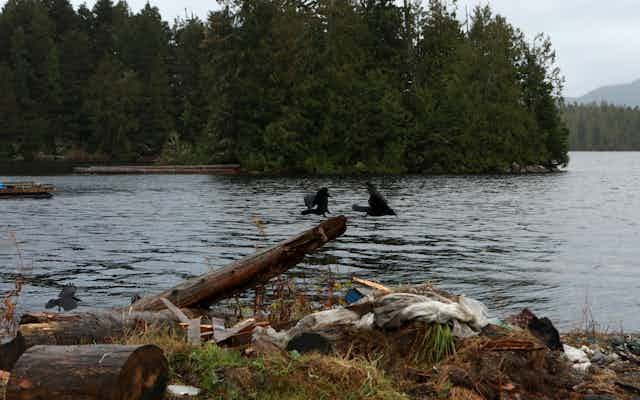Improper municipal solid waste (MSW) management ranks high among environmental issues First Nations communities in Canada face.
Many communities face historical, structural and operational challenges, such as inadequate capacity and lack of financial resources. Many also lack waste diversion programs including recycling. All these challenges hinder efforts of communities to improve MSW management practices, attitudes and behaviours.
Nonetheless, some communities continue to push for improved MSW management systems by developing plans and pursuing waste diversion programs such as composting and recycling.
These approaches, however, have not incorporated nor considered the culture of First Nations in the process of finding solutions to MSW challenges. First Nations’ way of life is embedded in their culture. This means that any MSW management approaches that seek to improve conditions in communities must incorporate their unique cultures.
These are issues that need attention and that community members are interested in discussing to find community-specific solutions.
How does culture impact MSW management?
I am a settler non-Indigenous researcher, who works with Indigenous communities in Canada on MSW management.

My latest research conducted in collaboration with 52 community members from Peguis First Nation in Manitoba and Heiltsuk Nation in British Columbia outlines five cultural factors that influence community members’ municipal solid waste management practices:
Avoiding waste: Taking just what one needs and not wasting anything taken from the environment or land. For example, community members use all parts of a hunted animal.
Taking care of one another: Sharing items, particularly food, with others and not hoarding prevents waste.
Protecting the land: Eschewing contamination and pollution of the environment or land and keeping it clean.
Respecting the land: Adhering to protocols about mother earth because it sustains life.
Connection to the land: Experiencing and having knowledge of the environment and land.
The overarching goal of these practices, community members explained, is to prevent the overconsumption of resources that underpins society’s throwaway culture and to protect the environment for future generations. These cultural practices challenge them to think differently about how to deal with their waste.
Dealing with waste today
Many Indigenous communities have developed intrinsic relationships with the environment that have sustained them throughout generations.
The Seven Grandfather Teachings — respect, love, honesty, truth, bravery, humility and wisdom — have particularly guided First Nations in their relationships with the land and with others — living and non-living.
However, applying these important teachings and the five cultural factors above to the management of municipal solid waste was not widespread in the two communities we worked with, because of increased MSW generation, according to community members.

Most of the community members we spoke with indicated that the application of cultural teachings, values and beliefs to managing MSW is extremely lacking. One member said, “When I see litter around in the street and waterways, I see a disconnect from our culture. This is because our culture is to look after the land and respect it and leave it as you met it.”
Another member revealed that:
“A lot of people ignore our culture when it comes to waste management… However, if you are taught to protect the land, then you need to care more about recycling…The culture here has died compared to when I was a child, because everybody cleaned the environment, and you attended ceremonies to learn how things are done.”
The legacy of bans on cultural gatherings and assimilationist policies continue to have negative impacts on Indigenous communities to this day.
For example, by forcefully relocating First Nations to isolated or remote lands from their original territories, they depend on packaged products, which increases waste generation. Many communities that were also nomadic and lived off the land became sedentary, leaving them unprepared to manage the high volumes of waste they produced.
And, with infrastructure, programs and finances lacking, communities have not been able to properly manage MSW and its resultant negative environmental and health impacts.
Holding culture at the centre of policy
Through this research, we have established that the culture of First Nations influences MSW management. However, applying cultural practices is not common among community members because of the impacts of colonization. Most community members indicated that their culture has significantly eroded and some aspects lost because of it.
Read more: Why pollution is as much about colonialism as chemicals — Don't Call Me Resilient transcript EP 11
Revitalizing Indigenous cultures is vital to improving the management of MSW and ensuring environmental protection in communities. It is through this reconnection with their traditions and practices that First Nations can apply their culture to protect the environment.
As participants in our research unequivocally suggested:
“People must be taught and be aware of the teachings… The teachings have to be the connection to the land, and that will make them think differently about things like waste management.”
As Canada works towards reconciliation with Indigenous Peoples, supporting cultural revitalization programs and efforts should be a responsibility for all persons, institutions and organizations.
The federal government, through Indigenous Services Canada, as well as provincial and municipal governments should work with Indigenous communities and incorporate their cultures into MSW policies, plans and activities. This could help engender greater participation in programs by community members, because of the connection with their values and beliefs.

